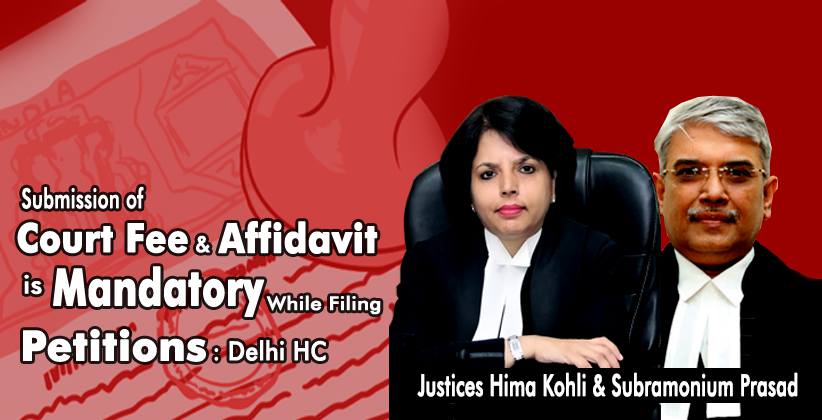Registrar General of the court passed an order on 28/08/20 but Delhi High Court refused to set aside the order, whereby submission of court fee and a duly attested affidavit has been made mandatory while filing petitions.
The Division Bench of Justice Hima Kohli and Justice Subramonium Prasad noted that the said order does not warrant any interference as the same has been issued after the situation has considerably normalized on Un-lockdown orders issued by the Central Government and State Government, from time to time.
Registrar General of the Delhi High Court passed an order on 28/08/20 for which the order had come in a plea moved by a citizen of Jalandhar, he sought the court's direction to quash it.
The said order reads as:
'it is directed that w.e.f. 01.09.2020, all filing shall be accompanied by the requisite court fee as well as the affidavit duly attested by the Oath Commissioner, and cases that are not accompanied with the court fee and attested affidavit shall be returned under objection.'
The Petitioner argued that she's a senior citizen aged 82 years and though she is a permanent resident of Delhi, presently she is residing at a Senior Citizen's Home at Jalandhar, Punjab.
She further submitted that due to the ongoing pandemic, she is in self-quarantine to protect herself at her advanced age and besides that, she has no one in Delhi who can be authorized to swear an affidavit on her behalf.
While refusing to interfere with the said order by passing a blanket order, the court did grant the liberty to the Petitioner to raise her concern.
The court said: 'However, in view of the facts of the present case which learned counsel for the petitioner has pointed out as above, liberty is granted to the petitioner to explain her peculiar facts and circumstances in the exemption application that may be moved by her along with the petitions/applications, etc. proposed to be filed in court with an undertaking that compliance of the Office order dated 28.08.2020 shall be made within a given time. The said exemption applications shall be considered and appropriate orders passed thereon, on a case to case basis.'








